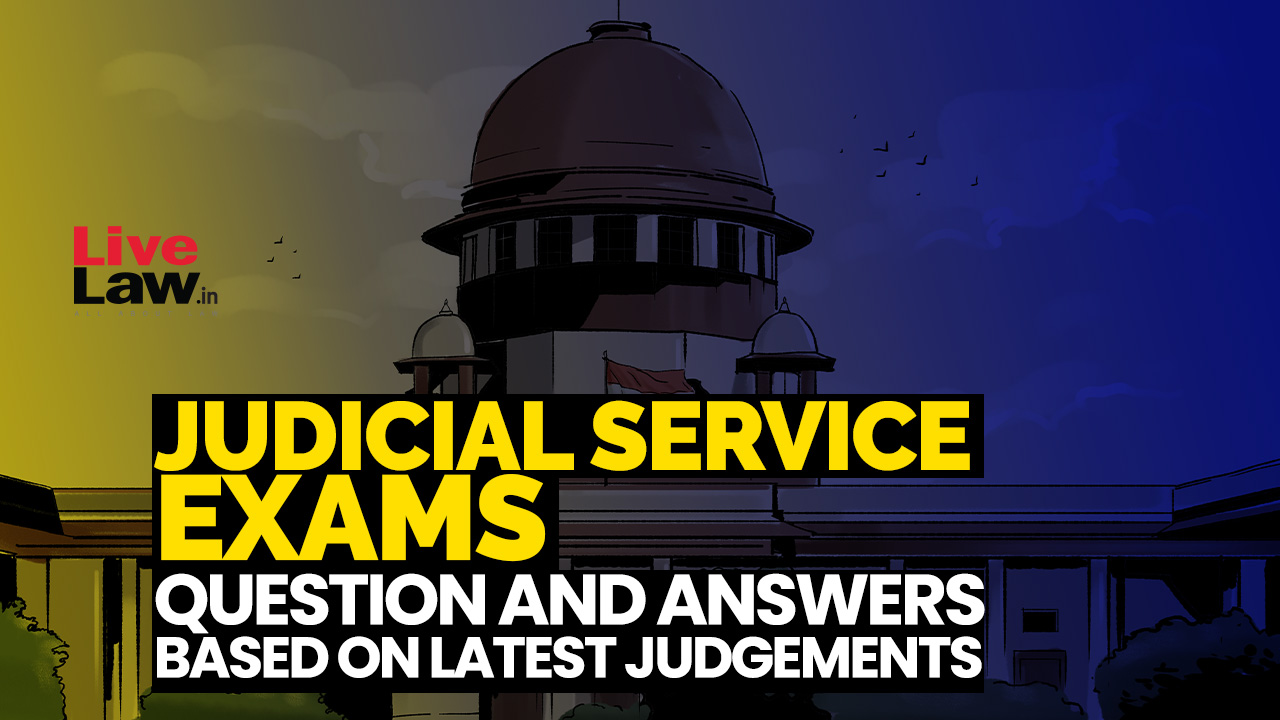Judicial Service Examination- Questions Based On Latest Supreme Court Judgements
Paras Ahuja
26 Dec 2022 12:14 PM IST

Next Story
26 Dec 2022 12:14 PM IST
1. In Sukhal Singh Khaira v. State of Punjab, the Supreme Court made some important observations with respect to Section 319, CrPC. Which of the following is true with respect to the same?a. Criminal trial ends with order of conviction and power under Section 319 cannot exercised during the pendency of pre-sentence hearingb. Trial against the convicted accused is concluded...
